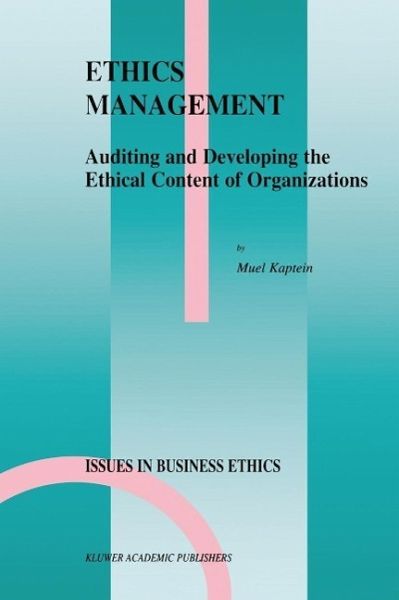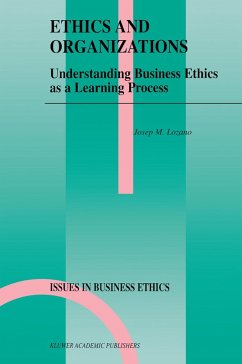
Ethics Management (eBook, PDF)
Auditing and Developing the Ethical Content of Organizations
Versandkostenfrei!
Sofort per Download lieferbar
160,95 €
inkl. MwSt.
Weitere Ausgaben:

PAYBACK Punkte
80 °P sammeln!
Why is ethics important to organizations? What are the characteristics of an ethical organization? How can we audit the ethics of an organization? What measures and activities stimulate the ethical development of organizations? This book addresses these questions. It is easier to say that ethics is necessary than to tell how to organize ethics. This book provides a fundamental and coherent vision on how ethics can be organized in a focused way. This study examines the assumptions for organizing ethics, the pitfalls and phases of such a process, the parts of an ethics audit and the great v...
- Why is ethics important to organizations?
- What are the characteristics of an ethical organization?
- How can we audit the ethics of an organization?
- What measures and activities stimulate the ethical development of organizations?
Dieser Download kann aus rechtlichen Gründen nur mit Rechnungsadresse in A, B, BG, CY, CZ, D, DK, EW, E, FIN, F, GR, HR, H, IRL, I, LT, L, LR, M, NL, PL, P, R, S, SLO, SK ausgeliefert werden.












